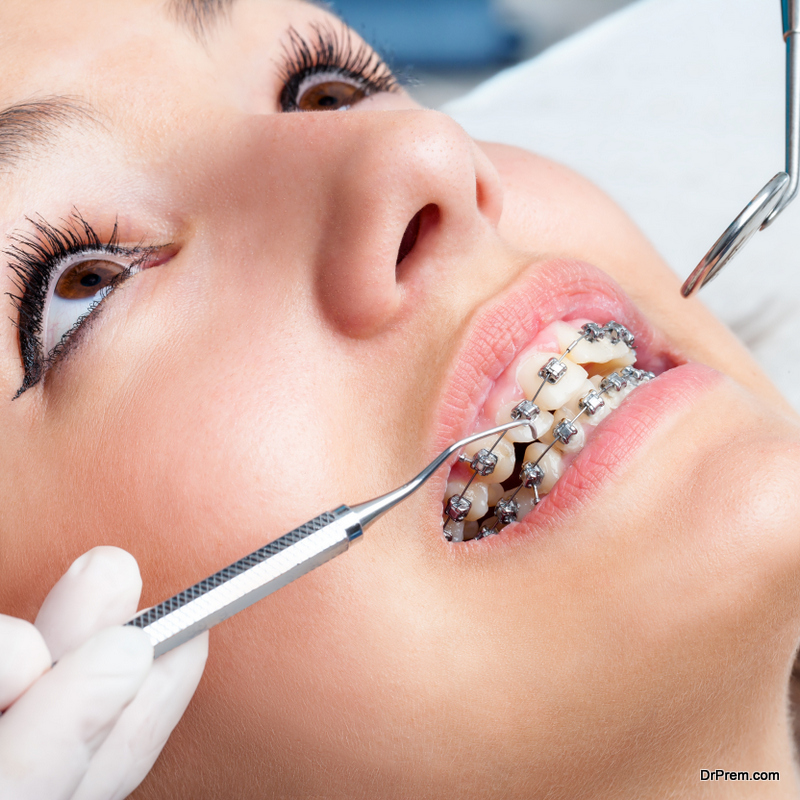Does going to the dentist top your list of life’s greatest fears? Above spiders, shark attacks, and a zombie apocalypse? If so, you’re not alone. In fact, nearly 60% of adults admit to having some level of fear when it comes to visiting the dentist. Sure, sitting in the chair with your mouth open can be uncomfortable. But most people fear the pain associated with more complex procedures than just a simple cleaning. Wherever you fall on the spectrum of dental anxiety, this article can help. Keep reading to learn a few ways to say goodbye to your fear of the dentist once and for all and embrace a healthy, shining smile!
Find the Right Dentist
 Like with any profession, some dentists are better at handling nervous patients than others. You want a dentist who is calm, understanding, and willing to accommodate you. If you’re currently seeing a dentist who appears aggravated or impatient over your anxiety, it’s probably time to switch. A dentist with empathy, who understands your apprehension, will work with you to calm your nerves and explain every part of the process. They’ll also offer solutions and alternative methods that you might be more comfortable with. The office staff should also be accommodating and welcoming. So, if you get a bad impression when you call and book an appointment, try a different office.
Like with any profession, some dentists are better at handling nervous patients than others. You want a dentist who is calm, understanding, and willing to accommodate you. If you’re currently seeing a dentist who appears aggravated or impatient over your anxiety, it’s probably time to switch. A dentist with empathy, who understands your apprehension, will work with you to calm your nerves and explain every part of the process. They’ll also offer solutions and alternative methods that you might be more comfortable with. The office staff should also be accommodating and welcoming. So, if you get a bad impression when you call and book an appointment, try a different office.
Be Honest About Your Fears
Regardless of your age, you need to put your pride aside and be honest with both yourself and the dentist about your fears and concerns. The more the dentist knows about your current situation and past experiences, the better prepared they’ll be to offer you the care you need and deserve. What exactly is it about the dentist that worries you? Is it the potential for pain or discomfort? The fear of having a cavity? Or maybe embarrassment over unhealthy teeth? Chances are, your dentist has seen far worse. Don’t let your ego get in the way of you getting the help and treatment you need. Depending on your situation and need, if your dentist can’t help you, they might refer you to another professional like this orthodontist.
Go Often
 That’s right — one of the best ways to face your fear is to do exactly that — face it, head on! The longer you put off going to the dentist, the less likely you are to ever actually make it into the exam chair. Not to mention, if you have a serious condition, the longer you wait to address it, the worse the results will be. If you see the dentist when you first experience pain or discomfort, they can most likely rectify the issue in one visit, with a minimally invasive procedure. If you wait too long, you may need extensive dental work and repeat visits. Is your fear the pain or a lengthy procedure? The best way to avoid this is by seeing the dentist sooner rather than later.
That’s right — one of the best ways to face your fear is to do exactly that — face it, head on! The longer you put off going to the dentist, the less likely you are to ever actually make it into the exam chair. Not to mention, if you have a serious condition, the longer you wait to address it, the worse the results will be. If you see the dentist when you first experience pain or discomfort, they can most likely rectify the issue in one visit, with a minimally invasive procedure. If you wait too long, you may need extensive dental work and repeat visits. Is your fear the pain or a lengthy procedure? The best way to avoid this is by seeing the dentist sooner rather than later.
Ask About Sedation Dentistry
Would you rather be completely unaware of what goes on during your dental visit? If so, sedation dentistry might just be the answer. Ask your dentist if they offer this service. Sedation dentistry means the dentist will put you to sleep using local or mild anesthesia, usually given orally. The best part is, this method is used for both invasive procedures and simple cleanings, depending on your level of anxiety. Most patients are mildly awake during the procedure but unaware of what’s happening. The sedation allows them to relax enough for the dentist to perform whatever cleanings of procedures they need to. Sedation levels vary and range from mild and moderate to deep and general anesthesia. Ask your dentist which type of sedation is safest and best for your situation.
Understand the Procedures
 Knowledge is power. If you’re uneasy about what’s going to happen during your visit, ask! The most common reason to see the dentist is for a routine cleaning. During this visit the dental hygienist will give your teeth a thorough cleaning. This includes using a small scraper and mirror to remove any tartar or plaque from the surface of your teeth. While this scraping feeling may feel strange, it doesn’t hurt. Some patients experience bleeding gums depending on their sensitivity. The hygienist will then use an electric style toothbrush and powerful cleaner to clean the surface of your teeth. At the end of your visit, the dentist will check your teeth and mouth for any visible signs of cavities or other issues. This is the time where you should express any concerns if you have them or mention any complications or pain you’ve experienced lately.
Knowledge is power. If you’re uneasy about what’s going to happen during your visit, ask! The most common reason to see the dentist is for a routine cleaning. During this visit the dental hygienist will give your teeth a thorough cleaning. This includes using a small scraper and mirror to remove any tartar or plaque from the surface of your teeth. While this scraping feeling may feel strange, it doesn’t hurt. Some patients experience bleeding gums depending on their sensitivity. The hygienist will then use an electric style toothbrush and powerful cleaner to clean the surface of your teeth. At the end of your visit, the dentist will check your teeth and mouth for any visible signs of cavities or other issues. This is the time where you should express any concerns if you have them or mention any complications or pain you’ve experienced lately.
Other procedures include filling cavities and performing root canals. During any procedure like this, the doctor will use a needle to numb the area. While the needle may look intimidating, dentists are highly skilled at making this process as painless as possible. If you’re dealing with a professional, the worst you’ll feel is a mild pinch when the needle is being inserted. The dentist will have you sit for several minutes to allow the numbing agents to take effect. Once it does, you won’t feel any part of the procedure. While you may experience some discomfort after, your dentist will prescribe pain medication to help with this. You may also feel a little strange as the numbness wears off. Don’t be afraid to ask questions about the procedures your doctor mentions or the tools they’re using. A professional will explain every step of the process to help you feel more comfortable.
Not many people enjoy going to the dentist, but they understand it’s an important part of maintaining overall health. If you suffer from dental anxiety or a crippling fear of the dentist, we hope that these tips and tricks have shed a more positive light on your experience. Be sure to find a dentist you’re comfortable with and ask whatever questions you need to in order to feel at ease about the experience. Remember, if you ignore your teeth, they’ll go away! Push your fears aside and make dental health a priority.
Article Submitted By Community Writer




